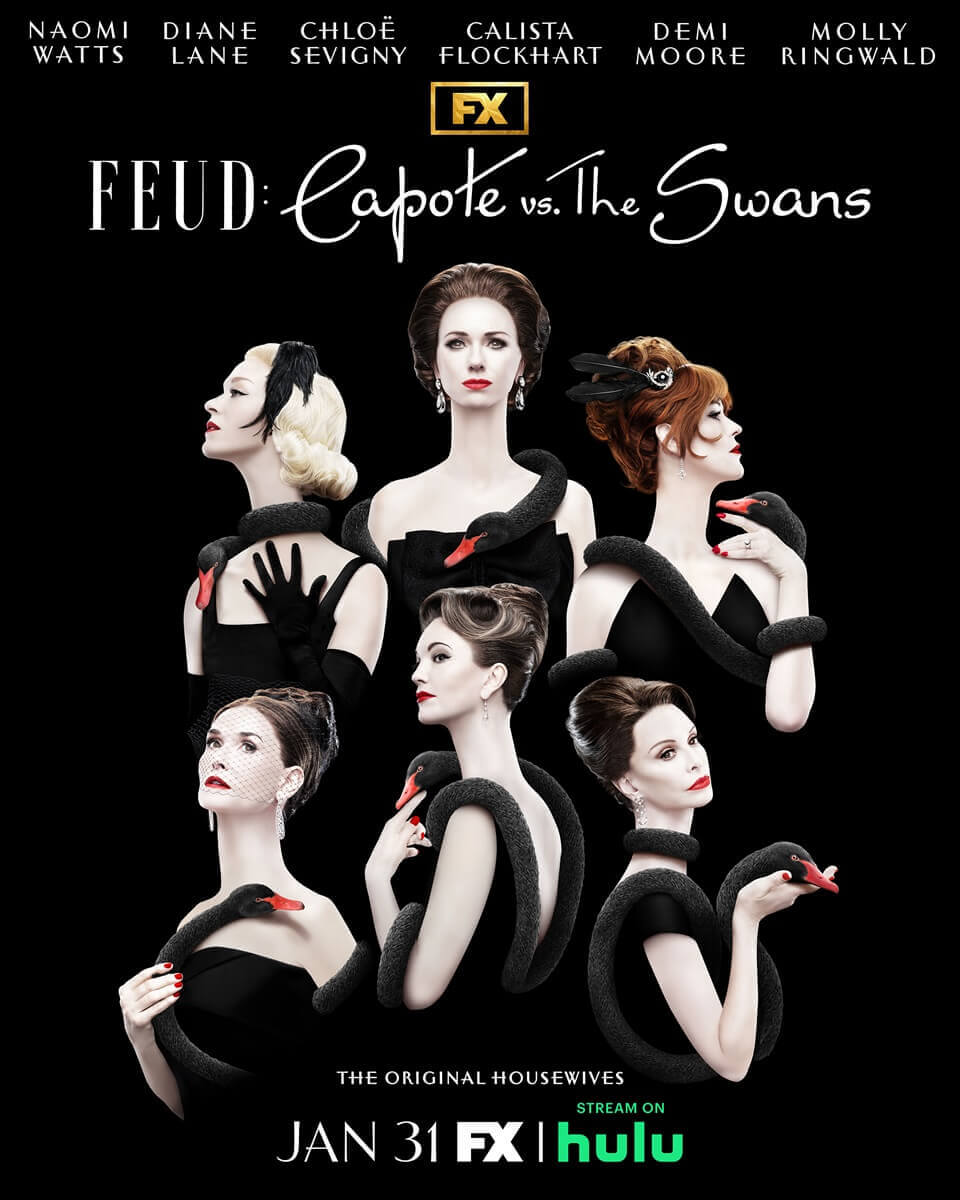The world of high society, literary prowess, and scandalous relationships has often been a captivating subject in popular culture. When it comes to the intriguing dynamics between Truman Capote and his famous socialite friends, often referred to as "The Swans," the narrative becomes even more fascinating. The miniseries "Feud: Capote vs. The Swans," created by Ryan Murphy, dives deep into this captivating story, showcasing the complex relationships that defined an era. Featuring a stellar cast, the show not only brings to life the glamour of the 1970s but also highlights the darker undertones of betrayal and friendship within elite circles.
As viewers tune in to witness the dramatic retelling of Capote's interactions with his glamorous companions, they are treated to a beautiful tapestry of performances that capture the essence of the characters. The show paints a vivid picture of the opulence of the time while also exposing the vulnerabilities of each character involved. With a mix of drama, humor, and poignant moments, the series invites audiences to reconsider the true nature of fame, loyalty, and the price one pays for success.
In this article, we will take a closer look at the cast of "Feud: Capote vs. The Swans," exploring their roles, backgrounds, and the real-life figures they portray. Additionally, we will delve into the broader themes presented in the series, analyzing how the relationships depicted resonate with contemporary society. Join us as we unravel the intricate details behind this captivating portrayal of two worlds colliding.
Who Are the Main Characters in Feud: Capote vs The Swans?
The cast of "Feud: Capote vs The Swans" brings to life a range of compelling characters, each intricately woven into the narrative. At the heart of the story is Truman Capote, the iconic author who finds himself at odds with his elite circle of friends, known as The Swans. Below is a brief overview of the main characters:
- Truman Capote: Portrayed by Toby Jones, Capote is a celebrated writer whose charm and wit often mask deeper insecurities.
- Lee Radziwill: Played by Christina Ricci, Radziwill is a prominent social figure and sister to Jacqueline Kennedy Onassis, often depicted as a loyal friend to Capote.
- Babe Paley: Portrayed by Naomi Watts, Paley is a stunning socialite who becomes the focal point of Capote's affections and ambitions.
- Gloria Vanderbilt: Played by Judy Davis, Vanderbilt is a fashion icon and socialite whose life intertwines with Capote's, showcasing the complexities of their friendship.
What Is the Relationship Dynamic Between Capote and The Swans?
The relationship between Truman Capote and The Swans is a central theme in "Feud: Capote vs The Swans." Capote's friendships with these women are marked by both devotion and betrayal. On one hand, he adores them, using their lives as inspiration for his work, but on the other hand, the personal and professional boundaries often blur, leading to dramatic consequences.
How Did Capote’s Writing Affect His Relationships?
Capote's writing had a profound impact on his relationships with The Swans. His desire to capture the essence of their lives in his work often left them feeling vulnerable. The publication of his unfinished novel "Answered Prayers" exposed their secrets, resulting in a shattered trust that ultimately altered the landscape of their friendships.
What Are the Themes Explored in Feud: Capote vs The Swans?
The series explores various themes, including:
- The Nature of Fame: The allure and pitfalls of fame are examined through the glamorous yet precarious lives of The Swans.
- Friendship and Betrayal: The complex relationships between Capote and The Swans illustrate the fine line between loyalty and betrayal.
- Identity and Self-Perception: Characters grapple with their identities in a world that often defines them by their relationships and social status.
- Art and Exploitation: The ethical dilemmas of using real-life experiences in art are poignantly highlighted through Capote's actions.
What Motivated the Creation of the Series?
The miniseries was created to shed light on a lesser-known aspect of Truman Capote's life—his relationships with powerful women. Ryan Murphy aimed to bring attention to the social dynamics and emotional intricacies that defined Capote's world, revealing how personal experiences influenced his writing and vice versa.
How Was The Cast Selected for Feud: Capote vs The Swans?
The selection of the cast was crucial in capturing the essence of the characters. The producers sought actors who could embody the glamour and complexity of The Swans, as well as the multifaceted nature of Capote himself. The casting choices reflect a careful consideration of talent, charisma, and the ability to portray deep emotional layers.
What Can We Learn from the Story of Capote and The Swans?
The narrative of "Feud: Capote vs The Swans" serves as a cautionary tale about the price of fame and the intricacies of human relationships. It highlights how ambition can lead to personal conflicts and the potential for betrayal among friends. The series encourages viewers to reflect on the nature of their own relationships and the importance of trust and loyalty.
What Impact Did Feud: Capote vs The Swans Have on Popular Culture?
The miniseries has sparked renewed interest in Truman Capote and the glamorous world of The Swans. It has led to discussions about the complexities of friendship in the realm of fame and influence, as well as the ethical implications of storytelling in art. The show's portrayal of Capote’s notorious fall from grace serves as a reminder of the fragility of relationships in the pursuit of success.
Final Thoughts on the Cast of Feud: Capote vs The Swans
In conclusion, the cast of "Feud: Capote vs The Swans" delivers powerful performances that resonate with audiences, bringing to life the intricate web of relationships that defined an era. The series not only entertains but also invites viewers to ponder the deeper themes of loyalty, betrayal, and the cost of fame. As we continue to explore the legacies of Truman Capote and his beloved Swans, one thing remains clear: their story is a timeless exploration of the human experience.



